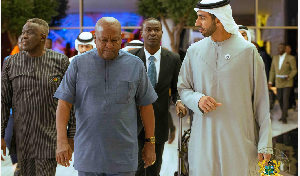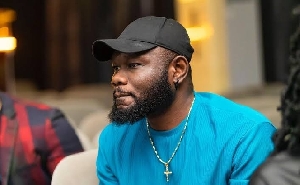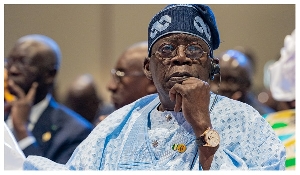Mma Sefia* has spent the most productive years of her life in Accra. As the years passed, with Sefia breaking her back making a living there, she’d gotten weaker.
During her time in the city, Sefia neither married nor had children. In Accra, though not literate, Sefia had gotten familiar with basic human rights issues and in so doing she had learned to become assertive and fight for whatever she needed.
Ageing and frail, Sefia returned to her father’s home in Tamale. It was here that Sefia’s worst nightmares began. Sefia’s father had passed on and his properties were to be shared among his children. She was born into a family of five. There were four men, one of whom was her brother that she shared the same father and mother. The other three were stepbrothers.
Customarily, only men were entitled to their father’s’ property, so Sefia’s biological brother, the eldest of the siblings, insisted that Sefia was not entitled to any inheritance from their late father because she was a woman.
Sefia would have none of that, insisting that each of the siblings, man or woman, was entitled to an equal share of the inheritance.
In the ensuing altercation, the older brother, feeling threatened by her rather unexpected and persistent assertiveness, accused her of witchcraft. Worn-out, never married and childless, she bore all the classical markings of a witch, and the accusation stuck! She was found guilty as charged and expelled from the community that had provided her roots.
And so, for four years, Sefia has been living in the Kukuo ‘witch camp’, never getting family visits, often famished and sometimes going days without a drop of the dirt-brown water they fetch from the River Oti ( an hour’s walk through rocky, slippery, tortuous, dusty footpaths and back ) to wet her parched throat.
……
Fareeda* was in her house when she heard her son start his motorbike. Minutes before, she had heard the telltale ring of his phone and the ensuing murmur of conversation. When Fareeda next heard of her son, he was dead. His motorcycle had collided with another, and his head had split in two. His grey matter had to be picked from the bushes by people with gloves.
As news of the boy’s horrible death spread in the community, rumours started sprouting of Fareeda sacrificing her son to witchcraft. General consensus? An investigation. She had to be tried for witchcraft! Fareeda, sole suspect in the death of her only son, fully aware that a cockroach never wins its case in a court of fowls, protested any investigation and trial. An ahaa! moment for the youth in the community: “You killed your own son, flesh of your own flesh, and blood of your own blood, in such horrible manner! What won’t you do to the rest of us young men?. After all, if crocodiles eat their own eggs, what will they not do to the eggs of frogs?”. And so the youth swore that if Fareeda was permitted to continue living within the community, thereby making it easier for her to access community members and afflict any further such wickedness, she’d be lynched.
Old, now childless, defenseless, accused of witchcraft, Fareeda was banished from the community. In Kukuo, she has sought solace for the past fourteen years.
……. ..
The stories above resonate with the daily lived experiences of hundreds of women in northern Ghana: accused of witchcraft, defenceless, shamed, and then banished from their communities. Starving, grabbing scraps for a living, scrawny frames and puny limbs making that thirty minute walk downhill to fetch water from the murky river in the sweltering heat, and another thirty minutes back, sometimes getting tripped by rocks so sharp they cut open their leathery soles, then falling, spilling the entire load of water they carried in their aluminium bowls or worse, breaking a hip or ankle bone – the daily suffering of these accused and exiled women.
I have only just shared with you stories of two women living in ‘witch camps’ in the Northern Region of Ghana. There are five such known camps in the north of Ghana. These ones in particular are from the Kukuo witches’ camp, which is the second largest of the camps and has one hundred and thirteen similar stories of women living within the same accursed fate to its name today.
These old, weak women are driven out from their communities often with one grandchild ( a girl ). The girls are then also condemned to a life of servitude along with their grandmothers. Without access to school, little or no access to healthcare, the women along with their granddaughters – that is, if they arrived at the camp with any – have to live out the rest of their lives in Kokuo.
Although, family visits are fully permitted, these women and their granddaughters hardly get to receive guests. Their kin largely believe in witchcraft and harbor the great fear that the accused women would harm them if they got any closer.
The little girls they arrive with in Kukuo are not permitted to return to their ‘feeder communities’ – communities from which they were banished – following the passing of their (grand)mothers because it is believed the deceased would pass on their evil craft to the girls.
The Northern Region of Ghana, along with the Upper East and Upper West Regions are the most deprived, the most isolated from modern facilities, poorest parts of the country.
It is in this environment that illiterate old women and girls ill-equipped to have their voices heard and without influence in their communities to improve their lot, have resigned themselves to ostracization. Their condition is a result of superstitions emerging from their communities and rooted in dehumanising cultural practices that have been retained even in clear contravention of the principles of the Universal Declaration of Human Rights and the Constitution of the Republic of Ghana which states that “All customary practices which dehumanize or are injurious to the physical and mental well-being of a person are prohibited” [Article 26 (2)].
It is said that in olden days (before some time in 1800s), women accused and found guilty of witchcraft were either beaten to death, burnt alive or banished from their communities with nowhere to go and no one to help.
That is, until one influential tindana ( a priest ) impressed upon the lords and peoples of the neighbouring communities to neither beat to death nor burn women accused of witchcraft. The tindana convinced the communities that he could cleanse these women and then exorcise the witchcraft that possessed them.
Once cleansed through a series of rituals, these women could then be returned to their families and communities unable to cause any more afflictions on their families, friends and/or neighbors. And so, from thence, whenever a woman had been accused of witchcraft, despite the humiliation and dehumanization that comes with the charge, they have had the bittersweet knowledge that they should be grateful that it’s not a beating or burning in public they’ll receive in sentence, but that they will seek solace and succour from the tindana, and hopefully could be cleansed and reintegrated into their communities. And that is how the Kukuo witch camp, which, as of this writing, is providing some sort of refuge to one hundred and thirteen women, accused of witchcraft and ostracised from their communities, came to be.
Over the next couple years, a Humanist Service Corps ( HSC ) in partnership with Songtaba, an indigenous women’s rights advocacy group is starting a volunteer project in Bimbilla in the Northern Region of Ghana.
Songtaba (a Dagbanli word for “together, we help each other”) advocates for the abolishment of corporal punishment and violence inflicted on girls in schools and communities which results in them leaving to the economically more viable southern cities – favorite destinations being Kumasi and Accra – where most find economic means working as headporters (popularly called kaya) carrying backbreaking loads for traders in Kejetia market ( in Kumasi ), Makola, Agbogbloshie markets in Accra and others.
Songtaba works for the liberation of young women, sometimes minors, forced into marriages ( often, to older men who would already have other wives and children or grandchildren. These men would have economic capital and social influence so that the girl’s family see her as a trade-off to tapping into some relative financial comfort or social attention ) by their parents or guardians.
Songtaba has been at the forefront of freeing those forced into early marriages, community sensitization and education, raising the awareness of the public outside the communities in which the practice exists – nationally and internationally – advocating for the immediate abolition of the practice, law enforcement where an infringement has occurred and the eventual hope that girls and womanhood will not be viewed as an economic asset to be traded off at will or an unnecessary social expenditure to escape from as soon as parents can.
Songtaba is working in the hope that sooner than later, girls and womanhood in the Northern Region of Ghana, in particular, will have equal respect and access to resources and opportunities as their male counterparts have. Their aim is for a society where girls sit in classrooms with confidence, not simply because of their femininity but because they are as good as their male counterparts, providing compelling competition to them.
This is not to pretend that equal opportunities and access to resources exists for women in other parts of Ghana, especially in the southern sector. That doesn’t exist anywhere in Ghana.
It has to be admitted, however, that although the same or similar issues of the social circumscription of womanhood and girls exists in both Northern and southern sectors of Ghana, the degrees aren’t the same. In southern Ghana, although witchcraft accusations exist, and though accused women will likely go through the same emotional meltdown and psychological pain that their counterparts in the north go through, there is little or no incidence of banishment from their communities so that women accused of witchcraft in say the Greater Accra region, generally have better access to healthcare and family support than in the North.
What exists in 21st century southern Ghana is rather, alleged witches being dragged into churches, or Christian ‘crusades’/’revivals’/’awakening’/’prayer camps’ or wattam-call-it, where they are humiliated in front of hundreds of people and then sometimes filmed to be broadcast to thousands more globally as part of an exorcism ritual. These ‘rituals’ are, in fact, phony orchestras conducted by mountebanks exploiting the desperations and credulities of large masses of Ghanaians and humiliating our grandmothers, mothers, aunties, daughters, sisters and friends in front of television cameras that reach far across the globe.
Songtaba has been at the forefront engaging community leaders to curb accusations of witchcraft and bring a halt to the culture of accusations and expulsion of women so-accused.
Considering that the Northern and Upper Regions have for years lagged behind the southern regions economically, and that vulnerable women and girls in Northern Ghana have been the hardest hit by this poverty, a woman being banished from her community is like your detached and condescending doctor reading the diagnosis of a terminal disease to you while you writhe in pain. It’s brutal enough for the emotional hurt to kill you. And kill them, it does!
Within a society that seems largely not to care, or which if it cared, has not the courage to admit the wrongness of witchcraft accusations and the outdatedness of the cultural practice, Songtaba seeks to find a way to communicate to the community in a language they understand (all pun and non-literal interpretations implied), to reduce the accusations and then eradicate them, to provide satisfactory shelter for these women (some of these women’s roofs leaks so badly that they are unable to sleep in the rooms when it rains.
During the rain, they are compelled to get up from their raffia mats, fold them and find a spot in the room to stand till the rain is over, and then clean up the mess from the leaks before they can get back to sleep), to ensure their health and to provide potable water in a community where livestock sometimes thirst to death.
Songtaba also bears the responsibility of initiating the process of ‘cleansing’ the accused women and paying for all the rituals leading to the reintegration of these women into the communities, if the accused woman so desires (many women have declined returning to their communities. They see nothing to return to, and wish to die and be buried in ‘camp’).
Songtaba’s is an onerous responsibility. It means Songtaba must also identify and access resources to equip itself for the task. It means finding personnel, preferably from the community, who are sincere and passionate about the issue.
It means, building a non-hostile, non-threatening rapport with community leaders who are the custodians of cultural practices, and also duty bearers and gradually influencing them with healthy communication in that trickle-down effect. It means finding funds – it definitely can’t be raised within the community.
It is within this environment and culture that the Humanist Service Corps (HSC) has arrived in Bimbilla to support Songtaba. The HSC is made up of six volunteers and one Program Manager. There are four volunteers of varying sociocultural backgrounds and relevant skills and qualities recruited from the United States, and two Ghanaians (members of the Humanist Association of Ghana) also with relevant cultural and personal experiences emerging from being accused of witchcraft by family. In the HSC’s own words: “The Humanist Service Corps provides an avenue for humanists to engage in a global, cultural exchange while working to protect human rights and the environment.
Our work in Ghana will support our partner organization, Songtaba, and other Ghanaian human rights organizations working to restore dignity to women who have been accused of witchcraft and banished to the country’s “witch camps.” Although the women are relatively safe from violence when they are in exile, the living conditions in the camps are deplorable. They do not have access to basic education and healthcare, and are unaware of or are unable to assert their legal rights.
Humanist Service Corps volunteers will work with the local organizations and individuals to design and implement sustainable projects, with the short-term goal of improving the standard of living in the witch camps and the long-term goal of eliminating the dynamics that lead to death or forcible and violent exile of women from their communities.”
Chiefly, but not limited to these, the HSC has already set up plans to support Songtaba in the provision of potable water to the Kukuo community, to set up a reliable health record for the one hundred and thirteen women in the camp whom Songtaba has done an excellent job registering to the National Health Insurance Scheme, to set up communication and public awareness channels, community sensitization and engagement plan, and a five-year strategic plan for Songtaba.
*Not real names.
Amanor B. Apenkro, Pres. Humanist Association of Ghana, for and on behalf of Songtaba and the Humanist Service Corps.
Opinions of Monday, 14 September 2015
Columnist: Apenkro, Amanor B.















